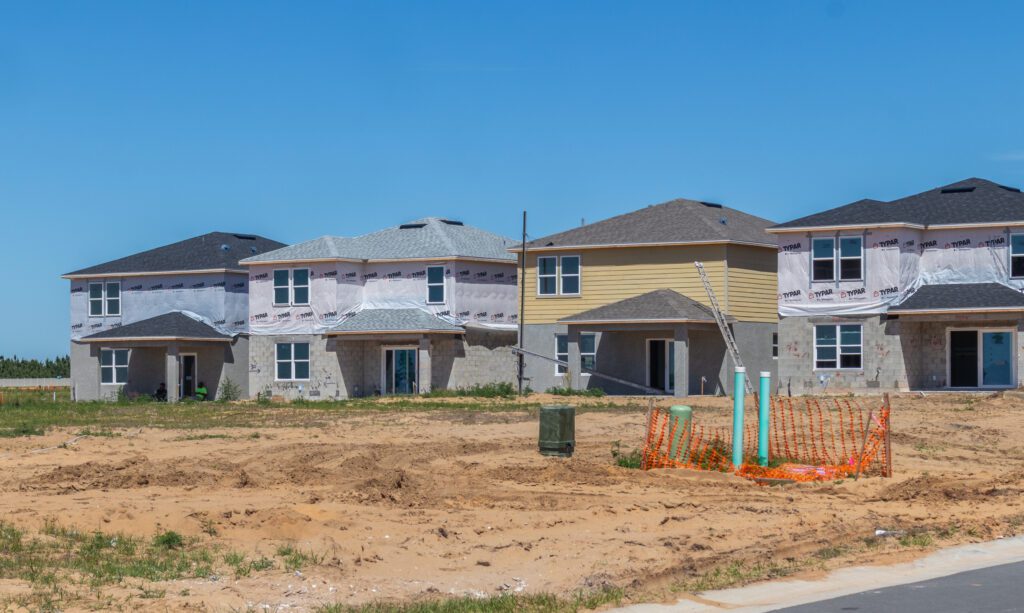U.S. Housing Market Experiences Slowest Home Price Growth in Nearly Two Years
The U.S. housing market is showing clear signs of cooling, with home prices climbing at their slowest pace in almost two years. According to a recent report by Redfin, Florida is at the forefront of this nationwide slowdown, experiencing notable price declines and shifts in market dynamics.
Why Are U.S. Home Prices Increasing at a Slower Rate?
Despite setting a record for median sale prices, U.S. home price growth has flattened considerably:
- Median Sale Price Peak: In May 2025, the median sale price hit a record $440,997.
- Growth Rate Decline: Prices increased by only 0.7% year-over-year, a drastic drop from the nearly 5% rise registered early in 2025.
- Historical Context: This marks the slowest annual price growth since June 2023.
Key Factors Behind the Slowdown
The softening price growth stems from the interplay of several factors:
- Rising Inventory Levels: More homes are entering the market, leading to heightened competition among sellers.
- Weakening Buyer Demand: Affordability challenges, including historically elevated mortgage rates, are deterring many potential buyers.
- Market Imbalance: Sellers exceed buyers by approximately 500,000, disrupting the supply-demand equilibrium that dominated the last five years.
As Redfin’s senior economist Asad Khan notes,
“The market has been shifting in buyers’ favor, but it doesn’t feel that way to many Americans because homebuying costs remain near record highs.”
Market Trends Impacting Sellers and Buyers
Current trends highlight a shift in negotiation dynamics:
- Longer Time on Market: New listings are taking more time to go under contract, with homes averaging 38 days in May—the longest period since 2020.
- Increasing Price Reductions: Sellers are forced to lower initial asking prices, especially when pricing their homes too aggressively.
- Fewer Over-Asking Sales: Only 31.2% of homes sold in May fetched prices above the asking price, the lowest May figure in five years.
- Canceled Contracts Surge: Pending sales cancellations hit a record high of 14.6%, with about 59,000 homes affected.
These trends mean buyers now wield greater leverage, finding more options and room for negotiation despite ongoing affordability hurdles.
Florida: The Epicenter of the Housing Market Slowdown
Florida’s real estate market exemplifies the national cooling trend with significant price drops and sales declines:
- Price Decline: Home prices fell by 1.8% year-over-year in May, with the median price at $413,500.
- Sales Drop: Closed home sales decreased by 13.7% year-over-year, totaling 33,357 in May.
- Top Cancellation Rates: Cities like San Antonio (21.3%), Orlando (20%), and Jacksonville (19.7%) lead in contract cancellations.
- Lengthened Listing Duration: Orlando homes spent a record 51 days on the market—19 days longer than last year.
Why Is Florida’s Market Slumping?
Several factors contribute to Florida’s housing challenges:
- Inventory Surge: Aggressive new construction during the pandemic-driven boom has dramatically increased housing supply.
- Migration Slowdown: Post-pandemic, fewer people are moving into Florida, reducing demand.
- Rising Ownership Costs: Elevated home insurance premiums and HOA fees are pushing the dream of homeownership out of reach for many buyers.
For a deeper exploration of Florida’s housing landscape, visit the Florida Realtors Association website.
What Lies Ahead for the U.S. Housing Market?
Industry experts forecast a continued cooling trend in home prices:
“We’ve hit a plateau with home prices. Many homeowners are now considering renting their homes out rather than selling,” says Rob Wittman, a Redfin Premier real estate agent based in Washington, D.C.
Buyers, meanwhile, are less urgent and often browsing, holding out hope for mortgage rates to drop—though such decreases appear unlikely in the near term.
Key Predictions for the Housing Market:
- Year-over-Year Price Decrease: Redfin expects home prices to start declining by the end of 2025.
- Mortgage Rates: Rates are projected to hover near 7% through the remainder of 2025, maintaining affordability challenges.
For ongoing updates on mortgage rates and housing forecasts, check resources like Mortgage News Daily.
Summary: What Homebuyers and Sellers Need to Know
- The U.S. housing market growth is slowing due to rising inventory and declining sales.
- Buyers currently have more negotiating power but still struggle with affordability.
- Florida’s market is notably softer, with price drops and increased cancellations.
- Experts anticipate a plateau or decline in home prices before the year ends.
- Mortgage rates are expected to stay high, continuing to impact buyer behavior.
If you’re considering entering the real estate market, whether buying or selling, staying informed about these shifting trends is crucial. More detailed market data and expert insights can be found on Redfin’s market trends page.
Image Credit: Getty Images | Wide angle view of multiple homes under construction in Davenport, Florida, April 2024


